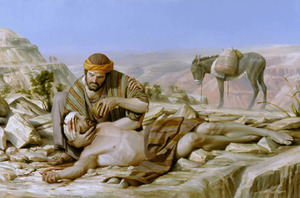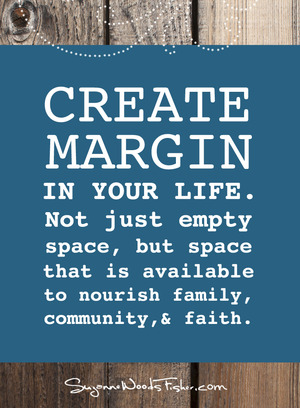 Most people I know would say that America is the most
blessed nation in the world. We have the highest standard of living across our population.
The poorest Americans still live better than 99% of the rest of the world. Most American families own at least one car,
have access to healthcare, and the average American household nets just shy of
$52K per year.
Most people I know would say that America is the most
blessed nation in the world. We have the highest standard of living across our population.
The poorest Americans still live better than 99% of the rest of the world. Most American families own at least one car,
have access to healthcare, and the average American household nets just shy of
$52K per year.
On the surface is would appear America is blessed by God!
But is it?
Sounds like a dumb question, I know, but I find myself
pondering this as I was reading Matthew 5 again this morning.
Jesus seems to flip the American definition of “blessed”
upside down.
Blessed are the poor
in spirit… (verse 3)
Blessed are those who
mourn… (4)
Blessed are the meek…
(5)
Blessed are those who
hunger and thirst for righteousness… (6)
Blessed are the
merciful… (7)
Blessed are the pure
in heart… (8)
Blessed are the
peacemakers… (9)
Blessed are those who
are persecuted because of righteousness… (10)
Blessed are those who
have the most stuff… (Wait!!! that one is not in there!)
Blessed are those who
go to church every Sunday… (Really?)
Blessed are those who
give 10% of their income to the church…
(Nope, Jesus never said this)
It seems that when Jesus tells us what it means to be
“blessed”, His teaching is contrary to what we as Americans define “blessed” to be, even
American Christians. But Jesus said it so plainly in Matthew 5.
How did I miss
that?
Lets look at some
facts
Sure Americans have more income than 99% of the world, but
we also have more debt. While 1/3rd of the world lives on less than
$2.00 per day (less than $1,000 per year) those same people have almost no debt. According
to NerdWallet's 2015 American Household Credit Card Debt Study, the average
American household has more than $90K in debt (mortgage, credit, school, auto,
private). This puts the U.S. second
worldwide behind only Japan. But don’t worry, we’re gaining fast.
This debt binds most Americans to the rat race that is our
daily jobs, working hard to pay off that loan just in time to trade in the old Nissan
for a new Audi that we can’t afford, only to go deeper in the hole. We work
overtime to climb the proverbial corporate ladder so we can get respect, and
boast about the promotion we earned all the while we drown in our own busyness
looking out the window of our corner office.
The American Dream, right?
ABC news reports that Americans work more hours than any
other nation, take less vacation, and retire later. If that isn’t enough we have just peaked
at a 30 year high in suicide-rate with suicide now being one of the top 10
causes of death in the U.S. That’s 47th of the 196 Geo-Political
nations in the world; the 76th Percentile in the most prosperous
nation in this planet’s history.
Yea, that doesn’t sound so blessed to me… So many of us are
trapped in our own personal hell, thinking we’ll find joy and fulfillment in the
next job, car, house, or other idol.
It makes me consider whether we own things or do they own
us…
Some perspective
In traveling to third world nations, I’ve seen many of the
poorest people find contentment in the simplest things. Though they have almost
nothing, they value everything. They have
no debt because credit doesn’t exist in their world. If they can’t buy or build
a home, they don’t have one. I’ve seen
Christians in Kenya and Congo praying for God to give them their daily bread
because they literally don’t know where their next meal will come from.
They put all of their faith in God, and literally depend on
Him to provide or they starve. There’s no Plan B, food-stamp card, or soup
kitchen. The homeless shelter is outside the village on the dirt. They’re in a situation
where if God doesn’t come through, they die. And I’ve been learning from them that is a good place to be.
Don’t believe me? Read 1 Kings 18 and see how Elijah the
prophet fared when he put it all on the line and trusted God to come through in
front of 450 prophets of Baal.
I like to recite the Lord’s Prayer but I’d freak out if I
didn’t know where my next meal is coming from. Heck many of us freak out because
we don’t know what is going to happen to our 401k’s when the market drops 300
points because interest rates went up a quarter-point.
The American Dream
The American dream and the Gospel just don’t mesh well. One
says you can do anything if you work hard enough, and if you do, you will get
everything you deserve.
The other says you must be willing to lay down your life,
leave everything, give it all away, and follow a homeless King… and (by the way) you will not get what you deserve.
Let me be clear, I’m not an ungrateful American. I do love
this country and appreciate the many freedoms we do have. I spent my entire
childhood wondering if my dad was going to come home from his deployment. He served 30+ years and retired a 3 Star General in the U.S. Army. I have some
semblance of what it is to sacrifice, and I know freedom isn’t free. You won’t
see me arrogantly taking a knee during the National Anthem. Please don’t misunderstand what I’m saying
here. I’m not anti-American.
What I am saying is that God is no respecter of persons
(Romans 2) and does not love America more than He loves other countries. He did
not pummel Haiti with Hurricane Matthew only to push it aside of Florida
because He loves America more.
The Gospel is not for America only, it is for all of
humanity. We must be careful not to catch ourselves in a puddle of narcissism
believing that God’s plan hinges on America.
Jesus is not a white guy with a Make America Great again
hat, walking around in His Toms sandals, flexing an Uncle Sam tattoo on his
left arm. He is the resurrected Son of God who lived among the poor, ate with
sinners, owned nothing, gave away everything (including His own life), all because
His Daddy loves you and wants you to love Him too.
When you realize that, I mean truly realize what God has
done for you, wiping away the wrongs you have done so you don’t get the
punishment you deserve, then you will know what it is to be blessed, regardless of what nation you live in.
Grace and Peace.
































